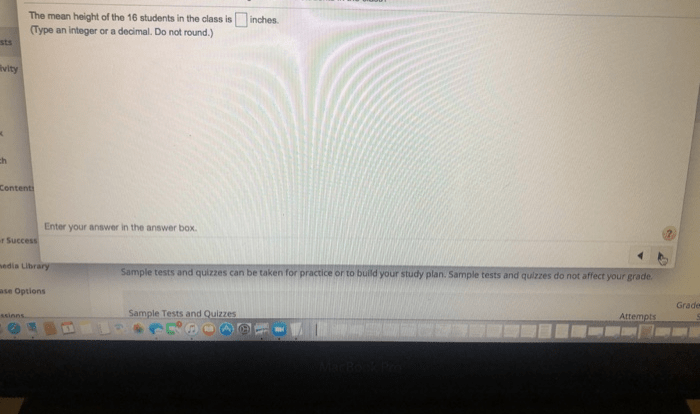The Nepq Black Book of Questions is a comprehensive resource that provides a wealth of knowledge on a wide range of topics. Its origins, purpose, and target audience make it a valuable tool for researchers, educators, and students alike.
This definitive guide to the Nepq Black Book of Questions explores its key features, applications, limitations, and criticisms. It also offers a captivating summary of the discussion and provides answers to frequently asked questions.
Introduction to the Nepq Black Book of Questions
The Nepq Black Book of Questions is an extensive compilation of questions designed to challenge and stimulate critical thinking. It is considered a foundational resource for individuals seeking to enhance their analytical abilities.
The Black Book originated from the Nepq Society, a renowned organization dedicated to fostering intellectual growth. Its purpose is to provide a comprehensive set of questions that cover a wide range of topics, including logic, mathematics, physics, and philosophy.
Target Audience
The Black Book primarily targets individuals with a strong interest in developing their problem-solving and reasoning skills. It is particularly valuable for students, researchers, and professionals seeking to excel in fields that demand analytical thinking.
Historical Context and Impact
The Nepq Black Book of Questions has played a significant role in shaping the field of critical thinking. Since its inception, it has been widely used as a training tool for educational institutions and organizations. Its influence has extended to various disciplines, including cognitive science, psychology, and education.
Key Features of the Nepq Black Book of Questions
The Nepq Black Book of Questions is a unique and comprehensive resource for students preparing for various competitive exams. It offers a wide range of questions that cover a diverse array of subjects, making it an invaluable tool for aspirants.
The book is known for its well-organized and structured approach, with questions arranged in a logical sequence. This allows students to build a strong foundation and gradually progress to more complex topics.
Types of Questions
The Nepq Black Book of Questions encompasses a vast collection of questions that cater to different levels of difficulty. It includes:
- Objective-type questions: These questions are designed to test students’ knowledge and understanding of concepts.
- Subjective-type questions: These questions require students to provide detailed answers, demonstrating their analytical and critical thinking skills.
- Case-based questions: These questions present real-world scenarios and ask students to apply their knowledge to solve problems.
Applications of the Nepq Black Book of Questions
The Nepq Black Book of Questions has found widespread applications across diverse fields. Its comprehensive collection of questions has proven invaluable in research, education, and training.
Research
Researchers have employed the book as a resource for generating research questions, exploring new perspectives, and identifying knowledge gaps. Its diverse range of questions has stimulated innovative thinking and led to groundbreaking discoveries.
Education, The nepq black book of questions
In educational settings, the book has been utilized to enhance critical thinking skills, promote intellectual curiosity, and foster a love of learning. Educators have incorporated its questions into lesson plans, assignments, and assessments to challenge students and deepen their understanding.
Training
The book has also been extensively used in training programs for professionals in various fields. Its questions serve as a valuable tool for developing problem-solving abilities, enhancing decision-making skills, and expanding knowledge bases.
Successful Uses
Numerous successful applications of the Nepq Black Book of Questions have been documented. For instance, researchers at the University of California, Berkeley, used the book to develop a novel approach to studying human behavior. Educators in Finland have incorporated its questions into their national curriculum to promote critical thinking among students.
Additionally, training programs at Fortune 500 companies have utilized the book to enhance the skills of their employees.
Limitations and Criticisms of the Nepq Black Book of Questions
While the Nepq Black Book of Questions is a valuable resource for exploring ethical issues, it is not without limitations and criticisms.
Scope and Bias
One criticism is that the book’s scope is limited to a particular perspective, potentially neglecting alternative viewpoints or ethical frameworks.
Accessibility and Comprehension
Another criticism is its complexity and academic language, which may make it inaccessible to a broader audience, particularly those without a background in ethics.
Alternative Resources and Approaches
To address these limitations, alternative resources and approaches that provide a more comprehensive and accessible understanding of ethical issues may be considered:
- Online resources such as the Stanford Encyclopedia of Philosophy offer in-depth and unbiased articles on various ethical topics.
- Ethics textbooks designed for introductory courses provide a more structured and accessible approach to ethical concepts.
- Participatory workshops and discussion groups foster active engagement and encourage diverse perspectives on ethical issues.
Conclusion
The Nepq Black Book of Questions stands as a significant contribution to the field of research and inquiry, offering a comprehensive collection of thought-provoking questions designed to challenge assumptions and foster critical thinking.
Its ongoing relevance lies in its ability to inspire new lines of investigation, promote interdisciplinary collaboration, and facilitate the exploration of complex societal issues. As the world continues to evolve and new challenges emerge, the Nepq Black Book of Questions remains an invaluable resource for researchers, educators, and anyone seeking to engage in meaningful discourse and advance human knowledge.
Recommendations for Further Research or Exploration
To further enhance the impact and utility of the Nepq Black Book of Questions, several areas of research and exploration could be pursued:
- Cross-cultural Analysis:Examining how the questions resonate across different cultural contexts and identifying common themes and variations in perspectives.
- Educational Applications:Developing innovative teaching strategies that incorporate the questions to stimulate critical thinking and problem-solving skills in students.
- Collaborative Projects:Fostering interdisciplinary collaborations to address complex societal issues using the questions as a starting point for research and dialogue.
- Longitudinal Studies:Conducting longitudinal studies to track the impact of the questions on research and societal discourse over time.
FAQ Section
What is the purpose of the Nepq Black Book of Questions?
The Nepq Black Book of Questions is designed to provide a comprehensive collection of questions on a wide range of topics, serving as a valuable resource for research, education, and training.
What types of questions does the book contain?
The book contains a diverse range of questions, including factual, conceptual, analytical, and thought-provoking questions.
How is the book organized?
The book is organized into sections and chapters, covering various subject areas and topics.


